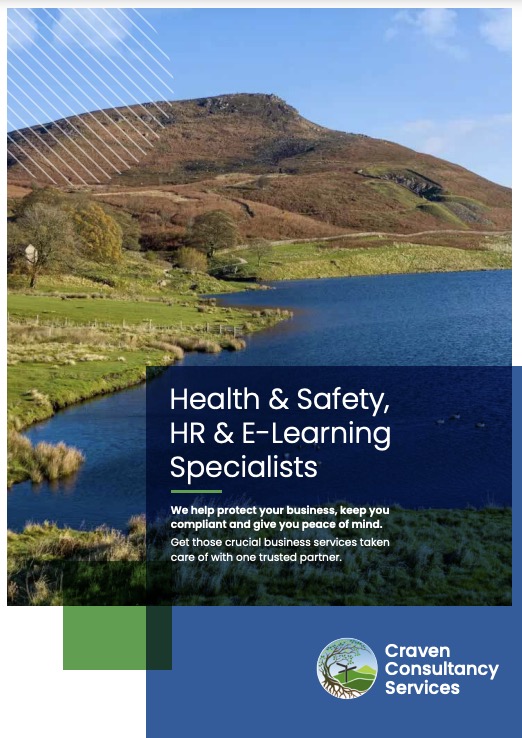Every year on (or about) the 16th January, the phenomenon of Blue Monday spreads across the UK to supposedly put a dark cloud of depression over one and all. The polar opposite of Christmas day.
What is Blue Monday?
The idea of Blue Monday has gained popularity over recent years and stems from a piece of academic research in 2005 by Dr Cliff Arnall. He used a scientific formula to pinpoint the 20th January as the day when people feel at their lowest – although he now regrets drawing attention to it!
Why is Blue Monday so depressing?
For many of us, the belief that mid-January is the low-point of the year doesn’t come as a surprise. Pay-day seems unreachable and the fun of Christmas is firmly in the rear-view mirror.
When you’re not doing well, people try in vain to separate work from their personal life – in reality, their emotional and mental state clearly impacts their work. Sometimes it’s their work that is causing that distress. It shows up in many ways.
Spotting the signs
Someone dealing with burnout may speak less in team meetings or give fewer ideas. Someone with depression may self-medicate or drink at work, or not be able to concentrate. They may simply not feel up to anything and prefer to lie in bed. Someone with anxiety may not be able to get any work done because they are in a state of panic, or think they are having a heart attack because of a panic attack.
Speaking Openly
To help support teams, companies and managers must speak openly and create awareness about mental health.
Overcoming remote working wellbeing challenges
As more employers move to a hybrid working environment, leaders need to find new ways to offer support.
Remote work can make it more difficult to see one another on a daily basis, requiring a little more effort in tacking wellbeing. Especially in a remote environment, you cannot see when an employee is not doing well. They need to come to you. Our job as leaders is to create an environment where people feel they can speak up.
Here’s what companies can do to help their staff get through the post-holiday slump
As Christmas and New Year celebrations come to an end, many will be feeling the effects of gloomy weather, shorter days, and the debt they’ve run up after the festive break. It’s well known that the third Monday every January is dubbed ‘Blue Monday’, so what can businesses do to boost morale in the workplace and help employees get through the post-Christmas slump?
Allow more time for socialising
This is our top tip to avoid loneliness at work, especially on Blue Monday.
A problem shared is a problem halved, so encourage your employees to spend more time talking – without feeling guilty about not doing their work. Socialising is a core part of most employee wellbeing initiatives – and for good reason!
Chatting with colleagues about what’s bothering them can help them find people struggling with similar issues, as well as being able to see the situation from a different perspective. And you’ll soon see moods improve if there’s laughter along the way.
Create a fun event
At a time when everyone in the office is feeling low, what better way to cheer them up than with a team event they can look forward to either in the office or after work? Get your employees involved by asking them to come up with ideas.
There are plenty of ways you can bring some fun into the workplace; have a dress-down day, set up a competition, take everyone out for a drink after work or treat them to a staff lunch at a local restaurant. Another idea would be to kick start the day with a team breakfast. This will help to banish tiredness and keep energy levels high, as well as make everyone feel part of the team.
Recognise good work
Finally, staff can feel demotivated at the best of times, especially if they’re feeling overworked and their achievements are going unnoticed. It’s important that employers recognise a good job being done when they see it; even a ‘thank you’ won’t go amiss. If you’re aware that some of your staff are consistently doing a good job but you haven’t told them so, Blue Monday is a great time to do it as it’ll help them to feel more positive and motivated. This, in turn, will also count towards productivity in the workplace, so you really can’t go wrong.
Encourage staff to take lunch and breaks
Breakfast isn’t the only important meal of the day. Maintaining a healthy diet is good for all-round health and eating at regular intervals will help with stress and depression. Encourage staff to enjoy their full lunch break and eat something before they come back into the office. Make sure your employees feel comfortable taking regular breaks to keep moods lifted; when it’s often dark before and after work this time of year, it’ll be nice for your staff to get outside and enjoy the little bit of sunshine we do have!
Embrace the power of office dogs
What could be more therapeutic than petting one of our canine counterparts? Studies even show that being around dogs increases serotonin, helping people to relax and stay calm.
We can help you implement Positive and Proactive Workplace & Employee Wellbeing Strategies
Investing in employee wellbeing can lead to increased resilience, better employee engagement, reduced sickness absence and higher performance and productivity. However, wellbeing initiatives often fall short of their potential because they stand alone, isolated from the everyday business. To gain real benefit, employee wellbeing priorities must be integrated throughout an organisation, embedded in its culture, leadership and people management.
Employee Wellbeing and COVID-19 Support – Craven HR Services (cravensafetyservices.co.uk)













